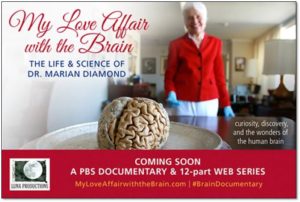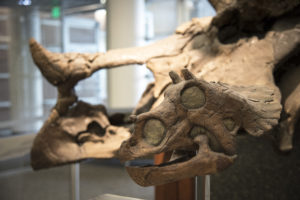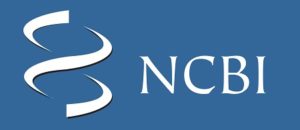Bioscience, Natural Resources & Public Health Library
Pop-up movie: My Love Affair with the Brain

Take a break in the Bioscience Library on Thursday, May 4, 12 Noon-1, watch, “My Love Affair with the Brain, The Life and Science of Dr. Marian Diamond”. See Dr. Diamond’s famous hat box and her life in science.
Cal Day at the Bioscience Library: Bears, bugs, dinosaurs, . . . and more!
Visit the Bioscience and Natural Resources Library on Cal Day, Saturday, April 22, 10am – 3pm. View the dinosaurs in the Valley Life Sciences Building and peruse the library’s collection of dinosaur books for all ages. Learn about library services and resources that are available to everyone. Items from the Life and Health Science libraries will be on display.
Date: April 22, 2017
Time: 10 am – 3 pm
Location: Look for the table display near the Bioscience Library (2101 VLSB)

Advanced PubMed workshop

Want to make your searches for biomedical information more effective and efficient? The Library’s Life and Health Sciences Division is holding a hands-on workshop on advanced features of PubMed, including:
- How to use filters to focus search results on specific article types, publication dates and more
- How to add field tags to find articles by author, title, journal, and other criteria
- How Medical Subject Headings (MeSH) can help you find additional relevant information
- How to use My NCBI to save searches, set up alerts, and display results in your preferred format
- How PubMed links to information in other NCBI resources
Location: Bioscience Library Training Room, 2101 VLSB
Date: Wednesday April 12
Time: 12 – 1 pm
No pre-registration is required; all are welcome.
Questions? Please contact Elliott Smith at esmith@library.berkeley.edu
EndNote (X8): Workshop
EndNote (X8): Citation & Document Manager: Hands-on Workshop

Use EndNote to manage your documents, organize your citations, import from databases, add pdfs, insert footnotes into your Word docs, and format bibliographies in any style (for Windows and Mac).
This hands-on workshop will cover getting started, adding citations, get full text, insert footnotes and create bibliographies.
The Bioscience Library Training room is equipped with PCs and EndNote X8, you are welcome to bring your laptop.
Open to all interested students and researchers; no registration is required.
Add this workshop to my bCal
Questions? Contact skoskine@library.berkeley.edu
Date: Tuesday, April 4.
Time: 4 – 5pm
Location: Bioscience Library Training room, 2189 VLSB (inside the library).
ACS and RSC to require ORCIDs
The Royal Society of Chemistry (RSC) and the Publications Division of the American Chemical Society (ACS) recently signed the ORCID Open Letter. For published articles the two societies will now require ORCIDs (Open Researcher and Contributor IDs) for corresponding authors and will automatically collect and display the ORCIDs of all submitting authors. The RSC announcement states that coordination between the publishers, Crossref and ORCID will ensure that published works are properly attributed.
In adopting the ORCID system RSC and ACS join a number of other publishers and journals including eLife, the European Molecular Biology Organization (EMBO), the American Geophysical Union (AGU), Institute of Electrical and Electronics Engineers (IEEE), Science journals, Wiley, and Wellcome Open Research.
Publish in RSC journals for free

The UC Berkeley Library is partnering with the Royal Society of Chemistry to support free Open Access publishing under the RSC’s Gold for Gold initiative.
But you must act soon: the Gold for Gold program will only continue until March 2017.
The program offers voucher codes that enable Berkeley researchers to publish their papers in Royal Society of Chemistry journals free of charge, as Gold Open Access (OA) articles, without paying the normal article publication fee (between £1000 and £2500).
You are eligible if:
- You are a UC Berkeley affiliate (faculty, staff, or student)
- Your article is new and has been accepted for publication by RSC (i.e., vouchers cannot be used for articles that have already been published) and
- You have not previously received a Gold for Gold voucher from the UC Berkeley Library in 2016
The application form is available at http://goo.gl/GAUwr, and as noted above, vouchers must be used by March 2017.
Questions? Please contact Elliott Smith, Interim Chemistry Librarian, at esmith [at] library.berkeley.edu
NCBI bioinformatics tools: An introduction

A hands-on workshop introducing NCBI bioinformatics tools such as PubMed, Gene, Protein, Nucleotide, and BLAST:
- Starting with a disease, syndrome, or process, identify the genes/proteins involved
- Starting with an organism and a protein, find the protein sequence and gene coding region
- Starting with a sequence, identify the gene/protein and source
The workshop will cover selecting the proper tools for your question, navigating through the interlinked NCBI databases, and saving your results.
- Date: Wednesday, Sept. 7
- Time: 12 – 1 pm
- Location: Bioscience Library Training Room, 2189 VLSB (inside the library)
Open to all interested students and researchers; no registration is required.
Questions? Contact esmith@library.berkeley.edu
Fall Workshops and Tours in the Bioscience Library
Workshops
This fall there is a packed schedule of drop-in workshops in the science libraries. No sign-up is necessary – just drop in and learn! Topics include Citation Management, Productivity Tools, Geographic Information Systems (GIS), Data Management, EndNote, Data Visualization, NCBI, and more. Many of these workshops will be held in the Training Room in the Marian Koshland Bioscience and Natural Resources Library. Please check the Science Libraries Events Calendar for times, dates, and class descriptions.
Tours
We will be offering three tours of the Marian Koshland Bioscience and Natural Resources Library.
- Friday, September 2, 1:30 pm
- Thursday, September 8, 11:30 am
- Friday, September 16, 1:00 pm
All tours are 30 minutes long and are offered on a drop-in basis.
Meet at the Library’s Circulation Desk, 2101 Valley Life Science Building. Event Contact: 510-642-2531
Data Visualization Workshop
A well-designed figure can have a huge impact on the communication of research results. This workshop will introduce key principles and resources for visualizing data:
- Choosing when to use a visualization
- Selecting the best visualization type for your data
- Choosing design elements that increase clarity and impact
- Avoiding visualization issues that obscure or distort data
- Finding tools for generating visualizations
Date: Thursday, July 7
Time: 12 – 1 pm
Location: Bioscience Library Training Room, 2189 VLSB (inside the library). Please, no food or drink in the Training Room.
Open to all interested students and researchers; no registration is required.
Questions? Contact esmith@library.berkeley.edu
New bioscience journals
The Life and Health Sciences Division of the UC Berkeley Library has recently purchased access to the following subscription resources:
- Cold Spring Harbor Perspectives in Medicine and its associated Subject Collections offer review articles on the molecular and cellular bases of disease, translational medicine, and emerging therapeutic strategies. With the addition of CSH Perspectives in Medicine, UC Berkeley researchers now have access to all of the Cold Spring Harbor Laboratory Press journals.
- Current Protocols in Stem Cell Biology provides protocols for the isolation, characterization, and differentiation of embryonic and adult stem cells.
- Journal of Visualized Experiments (JoVE): Developmental Biology offers video articles on research methodologies in the field of developmental biology in vitro and in vivo at the molecular, cellular, tissue, organ and whole organism levels.
- Wiley Interdisciplinary Reviews (WIREs):
- WIREs Developmental Biology is published in association with the Society for Developmental Biology and covers topics in cell and molecular biology, stem cell biology, plant biology, evolutionary biology, anatomy, physiology, and neuroscience.
- WIREs RNA offers review articles on topics related to RNA, including structure and dynamics, evolution and genomics, interactions with proteins and other molecules, translation, processing, disease and development, and methods.
- WIREs Systems Biology and Medicine covers topics in medicine, biology, physiology, computational biology and modeling, and bioengineering.
For more information, please contact bios@library.berkeley.edu.
